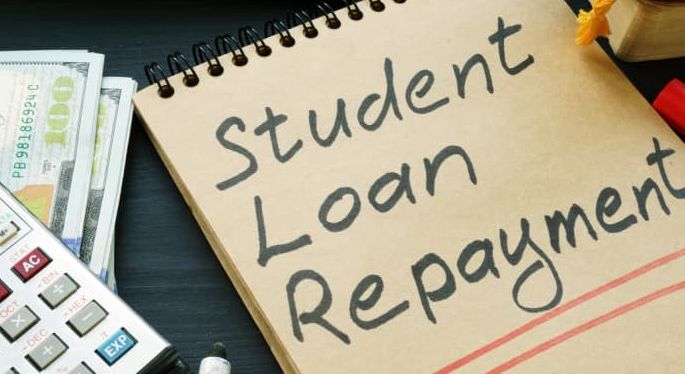How to Quickly Pay Off Your Student Loans

If your student loan payments under a different student loan repayment plan exceed 20% of your income, you can apply for Income-Sensitive Repayment to have your payment amount be changed to something more manageable for your annual income.
The exact amount for your monthly payment is determined by your lender. But it is typically 4% and 25% of your gross income and can change every year depending on your income.
You can only use the ISR plan for a maximum of 5 years and you’ll need to reapply each year, updating information on your income and household. After 5 years, you’ll be automatically switched to another student loan repayment plan.
Graduated Repayment Plan
The Graduated Repayment Plan is not an income-driven repayment plan. It’s actually quite similar to the Standard Repayment plan – except instead of fixed monthly payments, your monthly payments start low and then increase, gradually, over time.
The Graduated Repayment plan could be a good option for you if:
You want to pay off your student loans quickly and pay as little interest as possible
Your current income doesn’t currently allow you to make high monthly payments – as you would on the Standard Repayment plan – but you expect to be able to make higher payments in at least two years
How does the Graduated Repayment plan work?
The Graduated Repayment plan sets your initial payments at a low rate. But every two years your required monthly payments will increase so that you’re still able to pay off the loan within the standard repayment period of 10 years.
Extended Repayment Plan
Much like the Standard Repayment plan and Graduated Repayment plan, the Extended Repayment plan allows you to make fixed monthly payments to pay off your student loans in a set period of time. But, under this plan, that repayment period is extended.
The Extended Repayment plan could be a good fit for you if:
Your income allows you to make fixed monthly payments on your student loans
You need your monthly payments to be lower than what you’d pay under the Standard Repayment plan or Graduated Repayment plan
You don’t mind your repayment period being 15 years longer than the Standard Repayment plan or Graduated Repayment plan
How does the Extended Repayment plan work?
The Extended Repayment Plan allows you to make monthly payments that are fixed (same every month) or graduated (increasing over time) – either option ensures you’ll pay off your student loans within a 25 year repayment period.
Because the repayment period is longer, your monthly payments are generally lower than what you’d pay under the Standard Repayment plan or Graduated Repayment plan.
Private Student Loan Repayment Plans
Unlike federal student loans, private student loans and the terms for repayment aren’t regulated by the government. That means you’ll need to speak directly with your private student lender to know for sure what options you have. In general, though, you’re likely to find the following private student loan repayment plans.
Immediate Repayment Plan
With an immediate repayment plan, you’ll be making full monthly payments on your loans while you’re still in school. This plan could be a good option for you if:
You’re currently in college and have the income or financial support to make payments on both your principal balance and accrued interest
Your goal is to pay off your private student loan by the time you graduate
Interest-Only Repayment Plan
With an interest-only repayment plan, you’ll make monthly payments that cover the monthly interest being accrued on your loans while you’re still in school. This plan could be a good fit for you if:
You’re currently in college and have the income or financial support to make monthly payments that prevent your balance from growing due to interest
Partial Interest Repayment Plan
With a partial interest repayment plan, you’ll make a fixed monthly payment that covers part of the interest being accrued on your loans while you’re still in school. This plan could be a good fit for you if:
You’re currently in college and have the income or financial support to make small monthly payments that keep your loan balance from growing too much while in school
Lender-Specific Flexible Repayment Plans
You probably noticed that the three private student loan repayment plans we just mentioned are for current students. That’s because, generally, once you’ve graduated you’ll need to make monthly payments that cover both your principal and interest during a set repayment period.
But, if those payments are too high for your current income, try speaking with your private loan lender to see if they have flexible repayment plans. For example, Sallie Mae has a Graduated Repayment Period program.
Deferment or Forbearance
If you’re not able to make your private student loan payments, you can also apply for deferment or forbearance.
Deferment is typically granted if you’re going back to school (e.g. graduate school) or enrolling in the military. Forbearance is typically granted if you have extenuating circumstances that make it hard to pay off your student loans (e.g. lost your job).
Both of these options would postpone any payments you would need to make. But you should only apply for them if you really need to because your student loans will accrue interest while in deferment or forbearance.
Should You Consolidate Your Student Loans?
Consolidating your student loans could make them easier to manage. How? Because it would combine all of your student loans into one loan that then only requires one monthly payment. It could also help you lower your monthly payments and extend your repayment period.
But, there are some drawbacks to consolidating student loans. For example, you might end up paying more in interest over time and you’d give up federal loan benefits (e.g. income-driven repayment plans).
On top of that, it’s a decision you can only make once. So, make sure to carefully consider all of your options before deciding to consolidate



